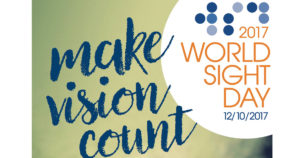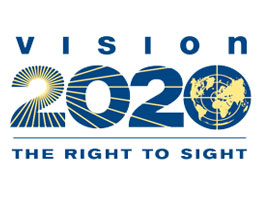World Sight Day 2017
This year, the ‘Call to Action’ for World Sight Day is:
“Make Vision Count”
In 2010, just over 28% of the world’s population were affected by Myopia (short-sightedness). This is predicted to rise to 34% by 2020 and nearly 50% by 2050 (read more about it here). In 2014, approximately 422 million people – or 8.5% of adults worldwide – were living with diabetes, compared to 108 million in 1980. Low- and middle-income countries account for approximately 75% of the global diabetes burden. Approximately one in three people living with diabetes have some degree of Diabetic Retinopathy (DR) and one in 10 will develop a vision-threatening form of the disease (read about the scale of the problem here).
This World Sight Day, let’s get the numbers out, so we know where we stand.
Remember, 4 out of 5—80%–of the world’s blind are avoidably so.
Foods That Help to Improve Eyesight
Ocular nutrition and eye health is an important part of helping maintain our vision and eye health as we age. One can safely say that every part of the human eye needs ocular nutrition support and nutrition to improve eye health.
As we age, many things can go wrong with our vision. Ultraviolet light from the sun can damage the lens and the cornea. Wind, dust, chlorine fumes, automobile fumes, freezing temperatures and physical injury are examples of threats to good vision.
Vibration from driving and hitting potholes has a cumulative negative impact on eye health as well as long hours spent in front of a computer screen. And certainly we need foods that help to promote healthy eyes.
Key points to remember:
•Eat a good, balanced diet with lots of fresh fruit and vegetables.
•New research suggests antioxidants and good nutrition may help prevent cataracts.Foods rich antioxidant vitamins like vitamin A and C, E may reduce your risk of cataracts and macular degeneration. Zinc helps your body absorb antioxidant vitamins and may have its own protective effects.
•Both flaxseed oil and fish oil may help relieve dry eyes and reduce the risk of other eye problems.
•Discuss your diet or taking a vitamin supplement with your Dietician if you believe that your diet may be inadequate.
•The biggest avoidable risk is smoking.
•Protect your eyes from sunlight. Use good quality sunglasses, Wearing a brimmed hat also offers very good protection.
•Get your eyes tested at least every two years and more frequently if necessary.








